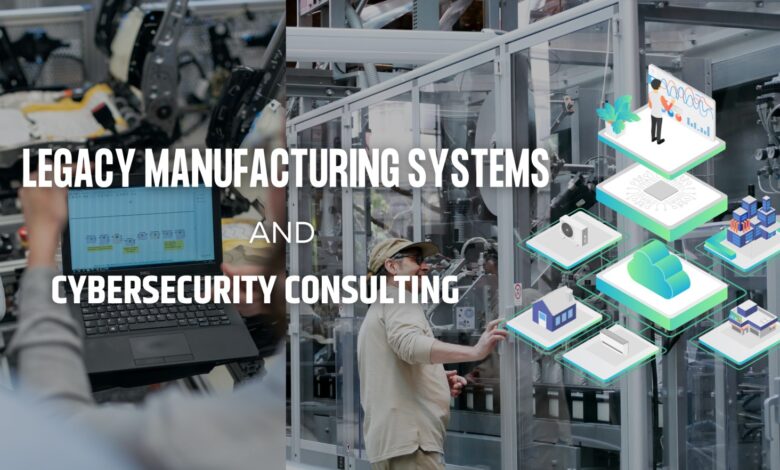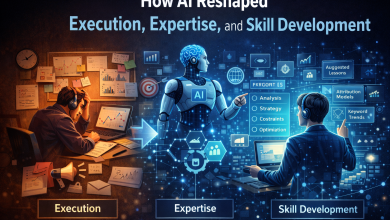
Legacy systems are outdated infrastructures that contribute to essential business functions but lack the competitiveness and the cutting-edge benefits provided by the latest technologies adopted by modern enterprises.
Many enterprises seeking data protection are effectively still utilizing legacy systems to manage significant manufacturing operations. These softwares are fully functional yet prone to cyber attacks as they lack the necessary security features and latest safeguards for data protection.
As a result, enterprises are moving towards adopting legacy system modernization, considering the significant leap towards attaining operational excellence. Systematically, organizations implement these changes through phased strategic planning, assessing their cost and benefit analysis.
Moving forward, let’s understand the overall market view of cyber attacks on the manufacturing industry, along with the risks to legacy manufacturing softwares, followed by its solutions through AI consulting services. The text also covers some relevant case studies and a comprehensive view of selecting the right consultation partner from the business’s point of view.
Market Overview of Cyberattacks on the Legacy Manufacturing Systems
Legacy Manufacturing systems are an essential part of the industrial landscape, which are the weaker links exposed to the risk of cyber threats and data privacy concerns.
A study by Dragos states that the manufacturing segment accounted for 65% of ransomware incidents last year. This reflects the criticality of experienced cybersecurity consulting services providers to protect legacy manufacturing systems from this threat proactively.
Furthermore, a study by Wipro suggests that cyberattacks on production plants worldwide can affect their production capacity, along with incurring financial losses for the company.
Understanding the Risks Posed by Legacy Manufacturing Systems
Understanding the figures derived from the market surveys conducted to assess the impact of cyber attacks on the industry, we move forward to briefly discuss the risks associated with legacy systems. These are essential for companies to consider as they can cause data loss, affecting the brand reputation negatively, and creating complaince issues for the organization, leading to hefty fines.
- Lack of Security Updates
Legacy manufacturing systems usually have no or minimal security updates, as they have become redundant in comparison to the latest modern technologies.
These systems, which are a significant part of the industrial production process, are prone to the risk of cyber threats due to the lack of proper safety features, which can be upgraded with legacy system modernization in the present time.
- Lack of Support from Original Vendors
These outdated systems lack proper technical support from their vendor companies, because, past a certain date of expiry, they are considered the older version of the technology created by those vendors.
One relevant example by Apple is the lack of proper technical support or security patches for the older versions of its products. The same trend follows in the manufacturing systems as well.
- Integration Issues with Modern Technologies
These old business software systems are built on complex, outdated technologies and have issues in seamlessly integrating with modern security technology.
This prevents modern systems from flagging relevant cyber threat concerns related to the legacy systems. Therefore, this makes it difficult to detect and mitigate cybersecurity concerns for these systems.
- Dynamics of the Growing Cyberthreat Patterns
Cybersecurity professionals are becoming increasingly advanced day by day. The threats due to detection and monitoring loopholes may lead to consequences like production disruptions, data breaches, and even financial losses for the company.
How to Strengthen Legacy System Modernization With Cybersecurity Consulting
The manufacturing segment of the industry is accelerating its growth, which brings us to AI consulting being the need of the hour. Protection of legacy manufacturing systems from these threats is essential.
This highlights the utilization of bringing in consultancy experts, providing benefits ranging from getting the latest industry insights to managing smooth processes customized as per the organization that are offered as part of this strategic move.
Sharing some key advantages of adopting the approach of cybersecurity for businesses:
1. Auditing and Analysis:
The comprehensive planning process of detecting the vulnerabilities in the legacy manufacturing systems includes:
- Conducting consistent assessments and testing systems to study the outdated systems and their weaknesses
- Accordingly, working on the optimization of outdated hardware and software
This technical study into the dynamics of the system in place will provide the foundation for understanding the company’s goals and requirements for AI Consulting.
2. Advanced Tools and Professional Expertise
Factually, the 5 C’s of cybersecurity are change, compliance, cost, continuity, and coverage.
In this case, cybersecurity consulting services offer an in-depth study based on these five elements related to legacy manufacturing systems. Additionally, such a deep dive into the dynamics of the manufacturing system brings forth security awareness from the employee panel, as well as reducing any human negligence leading to cyber threats.
3. Fresh Perspective
Bringing in a professional level of expertise adds a fresh perspective to managing cyber threats that pose various consequences, including production disruptions and data breaches. Spotting gaps and adopting necessary strategies accordingly to build cybersecurity becomes even more effective, assuring customers’ and stakeholders’ trust in the organization’s operations.
4. Support during crisis hours
Crisis support is the most essential benefit provided by professional consultancy partners as it assists in streamlining operations and helps ensure that the compliance regulations related to data protection are met. Undeniably, this is a significant consideration to bring in the AI consulting services.
Case Studies Relevant to the Systems
Understanding the elementary and detailed descriptions of the text mentioned above, let’s have a look at the practical examples of the cyber attack incidents and how they were resolved, including the long-term planning that went ahead in the organizations.
NASA
NASA experienced an incident related to hacking by a Chinese group in the year 2023, which gave the hackers full access to their system. Following such threats, they have been regularly working on upgrading their modern enterprise systems by taking recommendations from the Government Accountability Office (GAO).
Toyota
A key supplier of Toyota faced a cyberattack in March 2022. This resulted in production disruption and the shutdown of 14 massive domestic plants. In 2023, the company again faced multiple ransomware attacks and partnered with Kayfactor, that is a US Cybersecurity firm, to achieve system restoration and compliance.
This is one of the examples from the manufacturing industry that trusted the partnership of third-party services to protect its data and the system from such threats in the future.
Therefore, integration with a credible cybersecurity consultation services partner is undeniably an organization’s most important support mechanism in times of critical cyber threats.
How to Choose a Cybersecurity Consulting Services Provider?
Moving forward, let’s discuss the steps that can be taken by businesses to internally analyze their company’s SWOT analysis. This will help them get a clear picture of the goals that they are seeking from partnering with an AI consultancy. Additionally, it will assist them in the process of hiring the right consultancy partner.
- Defining clear organizational goals and outcomes can help set clear expectations with the management and the team, avoiding any long-term resentment with regard to the desired outcomes.
- Evaluate the company’s cybersecurity preparedness, along with understanding their cost considerations.
- Assess the technical requirements for IT training among staff.
- Review the existing framework in place and work on integrating legacy systems with modern technologies to detect and mitigate evolving cybersecurity risks.
Last but not least, research has proven that cybersecurity is one of the main concerns in the sphere of legacy manufacturing systems. This discussion revolves around the related elements of risk and how AI consulting can strengthen these manufacturing systems.
Conclusion
Hence, building cyber readiness for the evolving present-day and future capacity of legacy manufacturing systems stands as the main highlight. Additionally, investing in comprehensive cyber management services will be a beneficial move for the systems. Ultimately, building plans with a proactive approach to strengthen the firewall of the systems is the need of the hour.





